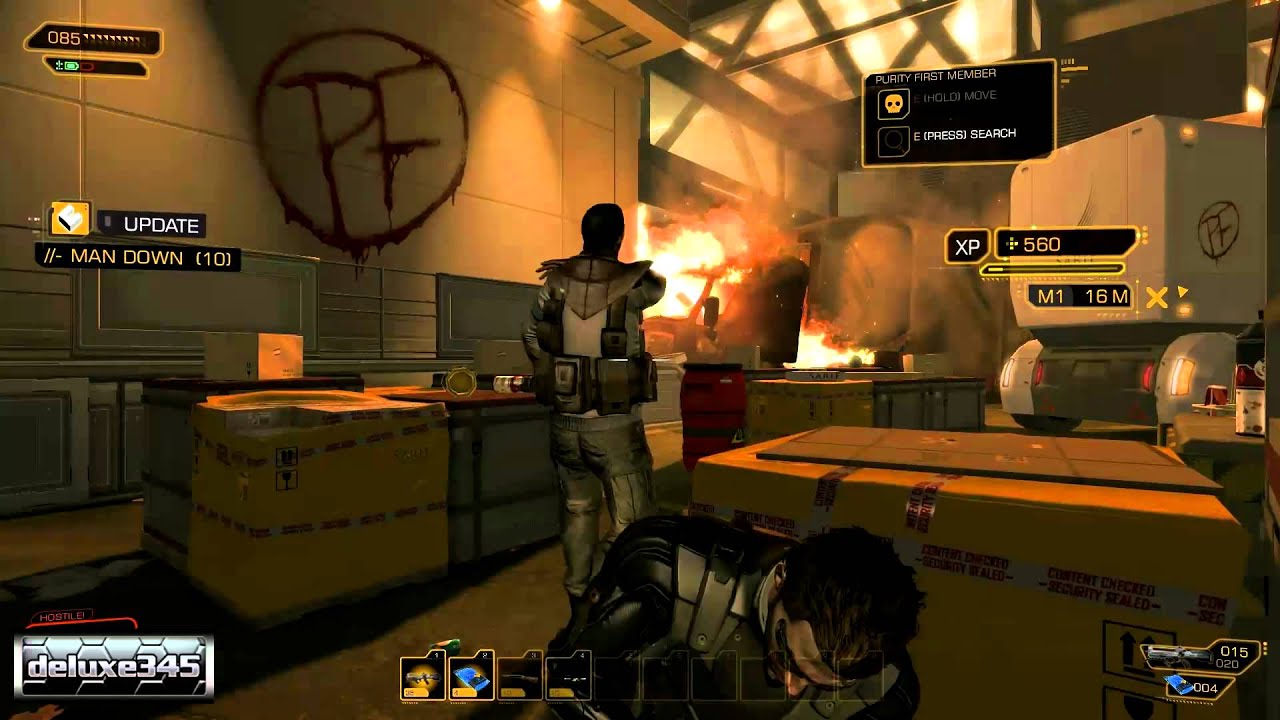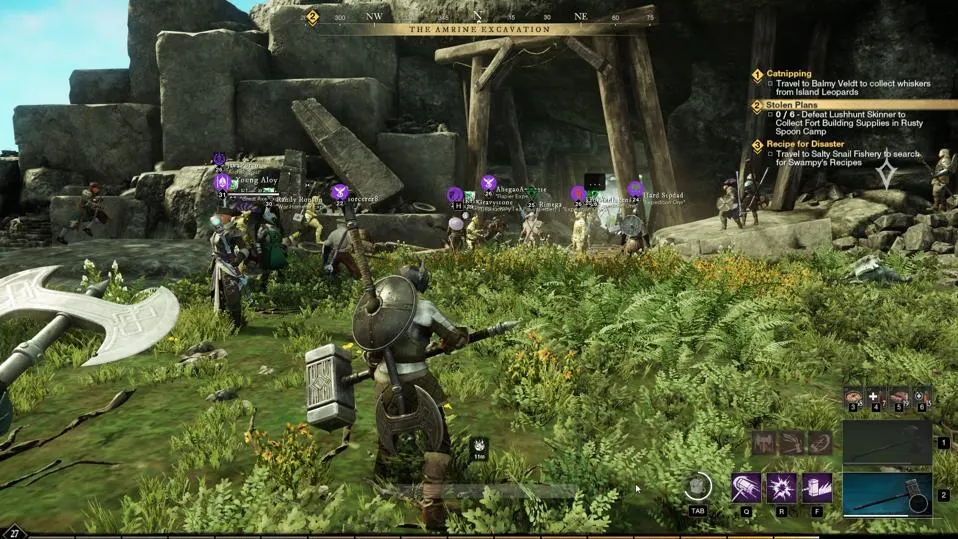Introduction
“Deus Ex: Human Revolution” is a critically acclaimed action role-playing game developed by Eidos-Montreal and published by Square Enix. Released in 2011, this game serves as a prequel to the original “Deus Ex” and is set in a dystopian future where human augmentation technology is on the rise. With its deep narrative, immersive world-building, and choice-driven gameplay, “Deus Ex: Human Revolution” has been celebrated for its complex storytelling and sophisticated game design.
In this comprehensive review, we will explore the game’s story, gameplay mechanics, visual presentation, and sound design. We’ll also examine the critical reception and player feedback, concluding with a FAQ section to address common questions about “Deus Ex: Human Revolution.”
Storyline and Setting
A Dystopian Future Unfolds
Set in the year 2027, “Deus Ex: Human Revolution” delves into a world on the brink of transformation. The story follows Adam Jensen, a security chief for a biotech corporation, who is critically injured during a terrorist attack. To save his life, Jensen is augmented with cutting-edge cybernetic implants, setting him on a path to uncover a conspiracy that threatens global stability. The game explores themes of transhumanism, privacy, and the ethical implications of advanced technology, creating a rich narrative tapestry.
Choice and Consequence
A core element of “Deus Ex: Human Revolution” is its emphasis on player choice and the consequences of those choices. The game allows players to approach missions with various strategies, including combat, stealth, or social interactions. Decisions made during these missions influence the story’s outcome and the development of Jensen’s character. This branching narrative creates a sense of agency and replayability, as players can experience different facets of the story based on their choices.
Gameplay Mechanics and Features
Character Customization and Augmentations
In “Deus Ex: Human Revolution,” character customization is a key feature. Players can upgrade Adam Jensen’s cybernetic implants using Praxis Points earned through gameplay. These augmentations offer a range of abilities, from enhanced combat skills to improved hacking capabilities. The flexibility in choosing augmentations allows players to tailor Jensen’s abilities to their preferred playstyle, whether they favor stealth, combat, or hacking.
Combat and Stealth Systems
The game’s combat system provides a blend of traditional first-person shooter mechanics and strategic elements. Players can engage enemies directly using a variety of weapons or choose a more tactical approach with non-lethal options. Stealth plays a significant role, with players able to bypass enemies or avoid detection by using Jensen’s augmentations and environmental cover. The combat system is well-balanced, offering multiple approaches to suit different playstyles.
Hacking and Augmentations
Hacking is another critical gameplay element, allowing players to interact with electronic systems, access restricted areas, and gather valuable information. The hacking mini-game, which involves solving a series of puzzles, adds an extra layer of strategy and immersion. Augmentations also enhance Jensen’s abilities, making hacking more efficient and combat encounters more manageable. The integration of these mechanics into the gameplay creates a dynamic and engaging experience.
Visual and Artistic Design
Cyberpunk Aesthetics and World-Building
“Deus Ex: Human Revolution” is renowned for its cyberpunk aesthetic, characterized by neon lights, futuristic cityscapes, and a gritty, dystopian atmosphere. The game’s art design effectively captures the essence of a world where technology and humanity intersect. The detailed environments, from the bustling streets of Detroit to the shadowy corridors of corporate facilities, contribute to the immersive experience.
Graphics and Technical Performance
While the game’s visuals were praised for their stylistic approach, some critics noted that the graphics were not as advanced as other titles released around the same time. Despite this, the art direction and design choices helped to compensate for any technical shortcomings. The character models and animations, although not groundbreaking, were sufficient to convey the game’s narrative and thematic elements.
Sound Design and Music
Voice Acting and Dialogue
“Deus Ex: Human Revolution” features a strong voice cast, with performances that add depth to the game’s characters. Adam Jensen, voiced by Elias Toufexis, delivers a memorable performance that captures the character’s internal struggles and external conflicts. The dialogue and voice acting contribute significantly to the narrative, helping to immerse players in the story.
Soundtrack and Audio Effects
The game’s soundtrack, composed by Michael McCann, complements the cyberpunk setting with a mix of ambient electronic music and orchestral elements. The music enhances the atmosphere and tension, while the audio effects associated with augmentations and combat provide a satisfying auditory experience. The sound design effectively supports the gameplay, contributing to the overall immersion.
Critical Reception and Player Feedback
Review Aggregates and Critic Opinions
“Deus Ex: Human Revolution” received generally positive reviews from critics, with particular praise for its narrative depth and choice-driven gameplay. On Metacritic, the game holds a score of 82/100 for the PlayStation 3 version, reflecting its strong reception. Critics appreciated the game’s ability to blend RPG elements with action-oriented gameplay, creating a compelling experience.
Player Reactions and Community Feedback
Players responded positively to “Deus Ex: Human Revolution,” often highlighting its engaging story and complex moral choices. The game’s emphasis on player agency and the multiple ways to approach missions were well-received, offering a high degree of replayability. However, some players noted that the game’s graphics and some technical aspects were not as polished as other contemporary releases.
Comparison to Other Titles in the Deus Ex Series
When compared to other titles in the Deus Ex series, “Human Revolution” is often seen as a worthy successor to the original game. It successfully captures the essence of the franchise while introducing modern gameplay mechanics and narrative elements. The game’s balance of action, stealth, and RPG elements makes it a standout entry in the series.
Conclusion: The Legacy of Deus Ex: Human Revolution
“Deus Ex: Human Revolution” stands as a significant entry in the action RPG genre, celebrated for its narrative complexity and player-driven choices. The game’s blend of cyberpunk aesthetics, engaging gameplay, and thought-provoking themes make it a memorable experience. While it may not have been without its technical shortcomings, the game’s strengths in storytelling and design continue to resonate with players.
As a prequel to the original “Deus Ex,” “Human Revolution” successfully bridges the gap between classic and modern gaming, offering a compelling glimpse into a dystopian future. Its impact on the genre and its enduring appeal ensure that it remains a notable title for fans of cyberpunk and RPG games alike.
FAQ About Deus Ex: Human Revolution
What platforms is Deus Ex: Human Revolution available on?
“Deus Ex: Human Revolution” is available on several platforms, including PlayStation 3, Xbox 360, and Microsoft Windows. It has also been re-released as a Director’s Cut on these platforms, as well as on Wii U.
How long does it take to complete Deus Ex: Human Revolution?
The average playtime for “Deus Ex: Human Revolution” is approximately 20 to 30 hours, depending on the player’s playstyle and how thoroughly they explore the game’s content.
Can you play Deus Ex: Human Revolution without engaging in combat?
Yes, “Deus Ex: Human Revolution” offers multiple playstyles, including stealth and non-lethal approaches. Players can choose to avoid combat by using stealth tactics, hacking, and dialogue options.
Are there multiple endings in Deus Ex: Human Revolution?
Yes, “Deus Ex: Human Revolution” features multiple endings based on the player’s choices throughout the game. The decisions made during key moments influence the game’s conclusion and the fate of various characters.
Does Deus Ex: Human Revolution have any DLC?
Yes, “Deus Ex: Human Revolution” has several downloadable content (DLC) packs, including “The Missing Link,” which provides additional story content and gameplay enhancements.
Is Deus Ex: Human Revolution worth playing today?
“Deus Ex: Human Revolution” is still considered a highly enjoyable game for fans of cyberpunk and RPG genres. Its engaging narrative, choice-driven gameplay, and immersive world make it a worthwhile experience for both new and returning players.



